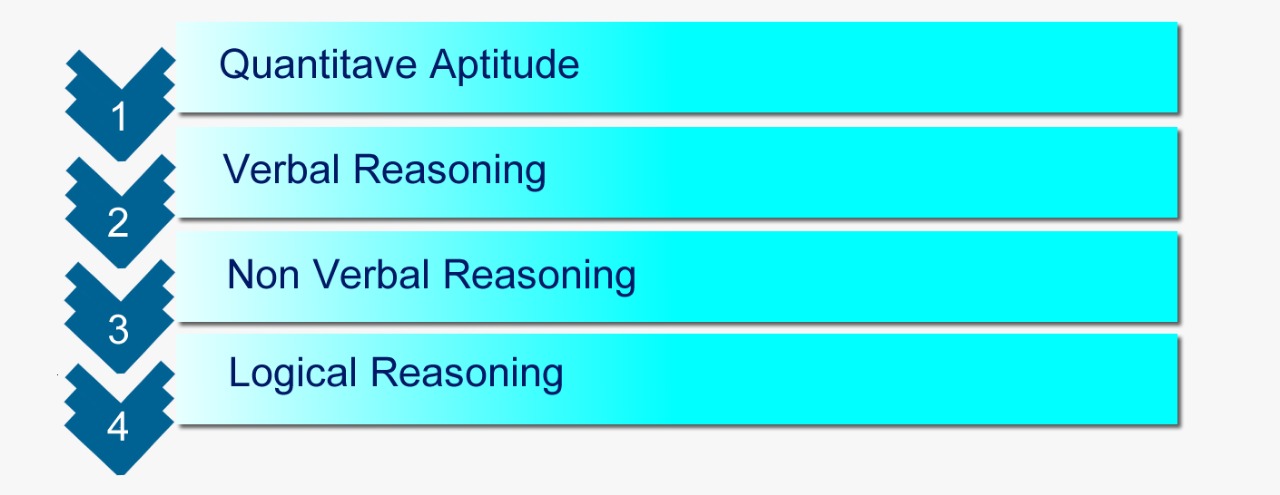contact@greenstechnologys.com
+91-89399 15572



What is an aptitude?Aptitude refers to the competency of a person to learn or acquire knowledge. Most of the jobs in the corporate world require employees to expand their skill set through additional training. As companies are ready to provide on the job training, they seek for candidates who have the competency to undergo the training. Aptitude testing evaluates how you accomplish tasks and react to situations you face in your daily environments. The tests include questions about your interests, talent and hobbies. Schools, employment agencies and companies use aptitude tests to guide the test taker's professional path. |
| FREE Demo Session: Try One FREE CLASS to see for yourself the quality of training. Flexible Timings / Weekend classes Available. Awarded as the Best Aptitude Training Center in Chennai - We Guarantee Your Aptitude Training Success in Chennai Join greens crack your career |
About Trainer
Ms. Athira having more than 8+ years of experience in the field of aptitude training have trained and placed more than 10000+ students for competitive exams ( bank exams, JEE, GMAT, MAT, KMAT, TNPSC, Railway exams etc.
Flexible Timings / Both Weekday and Weekend classes AvailableTalk to the Trainer @ +91 9176549600
FREE Demo Session:
Try ONE FREE CLASS to see for yourself the quality of training.
Free Materials Povided during Demo sessions
What is an Aptitude Test?
An aptitude test is a systematic means of testing a job candidate's abilities to perform specific tasks and react to a range of different situations. The tests each have a standardised method of administration and scoring, with the results quantified and compared with all other test takers. No prior knowledge is assumed, as the tests seek to determine innate ability at a particular competency. An aptitude test tests your following:
Verbal Skills: Aptitude skills measure your verbal abilities by examining your spelling, grammar, reading comprehension, critical thinking and finally your vocabulary. You may have to complete sentences or identify misspelled words, find out antonyms and synonyms.
Mathematic Skills: The math section of an aptitude test offers basic mathematics and this is the area where your speed and accuracy in problem solving is tested. Math problems get harder as you progress, and you have to find solutions using scratch paper.
Spatial Ability:Spatial ability is the capacity to interpret the meaning of shapes and images, draw forms and follow maps. Military, law enforcement and first responders take aptitude tests with these types of questions.
Data Checking:Data checking on aptitude tests measure your ability to look at tables and other data and check for accuracy and errors. Employment agencies offer this testing for data entry, clerical and accounting jobs.
Personality: Personality inventories, such as Myers-Briggs, ask questions about your likes and dislikes to determine what career and academic field fit your personality .
Aptitude tests are increasingly administered online - most often after a candidate has made their initial job application - and are used to filter unsuitable applicants out of the selection process, without the need for time-consuming one-to-one job interviews.
Employers use aptitude tests from a variety of providers - such as SHL, Talent Q and Cubiks - alongside general interview advice, application forms, assessment centres, academic results and other selection methods. No test is perfect, but all aim to give an indication of how candidates will respond to the challenges they will face in their day-to-day role at a firm.
The tests can be taken online or at a testing centre, such as a firm's offices, where they are usually paper-based. Often a firm may ask you to complete both types of test, to confirm you did not cheat during the initial unsupervised online test.

Aptitude Training Course Content
 5. Percentage
5. PercentageVerbal reasoning is the ability to understand the concepts expressed through words. In this you may get passage of text with some activities through verbal reasoning, one may assess your verbal skills. which may include your vocabulary, spelling, grammar and reading and understanding capabilities. Also, follow the reasoning topics given below.
1. Number seriesThe non verbal reasoning is like picture oriented problems. You can easily solve these by viewing the pictures. Also follow the nonverbal reasoning topics which are given below.
1. SeriesFinally, logical reasoning is the most challenging task. When you view the reasoning syllabus the important thing is knowing the topics of logical reasoning. These are given below.
1. Statements and course of actionPlacement Training

Students Reviews
The course was innovative with Speed Maths Techniques and time management giving a new dimension for the preparation of aptitude exams and the assessment regarding Group Discusion and Soft Skills helped me to be Placed in KEANE.

The APT Training class was very much helpful to me. It helped me in solving the problems more faster. Given short cut techniques was unmatchable.

To clear an aptitude test, time management is very important. I learnt the proper time management through speed maths and other time saving concepts for solving problems.Group Discussion session and Interview session conducted apart from aptitude class were also very helpful for my recruitment in KEANE. Overall attending this class was a complete preparation for recruitment.

The aptitude class by Ms. Athira was altogether a different experience. His enthusiasm and problem solving techniques were too good. His speed math classes really helped us lot as time saving. It is an important factor in aptitude test. He also conducted a mock GD and a mock interview for us which was an eye-opener. By his superb guidance I got selected in Mitsubishhi and I am very thankful to Athira madam and his team for their support and guidance.


Our experts will reach out to you in the next 24 hours
![]() Skill Challenge
Skill Challenge
![]() Self-Paced Sessions
Self-Paced Sessions
![]() Innovative Educator Experts
Innovative Educator Experts
![]() Help and Support
Help and Support
![]() Get Certified
Get Certified
